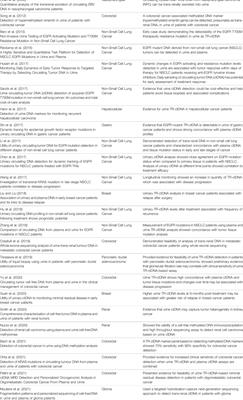MINI REVIEW
Published on 27 Apr 2022
Trans-Renal Cell-Free Tumor DNA for Urine-Based Liquid Biopsy of Cancer

doi 10.3389/fgene.2022.879108
- 3,759 views
- 18 citations
10k
Total downloads
40k
Total views and downloads
MINI REVIEW
Published on 27 Apr 2022

PERSPECTIVE
Published on 03 Jan 2022

BRIEF RESEARCH REPORT
Published on 11 Oct 2021

SYSTEMATIC REVIEW
Published on 30 Sep 2021

MINI REVIEW
Published on 17 Sep 2021

ORIGINAL RESEARCH
Published on 09 Sep 2021

MINI REVIEW
Published on 25 Aug 2021

ORIGINAL RESEARCH
Published on 25 Aug 2021

ORIGINAL RESEARCH
Published on 28 May 2021
